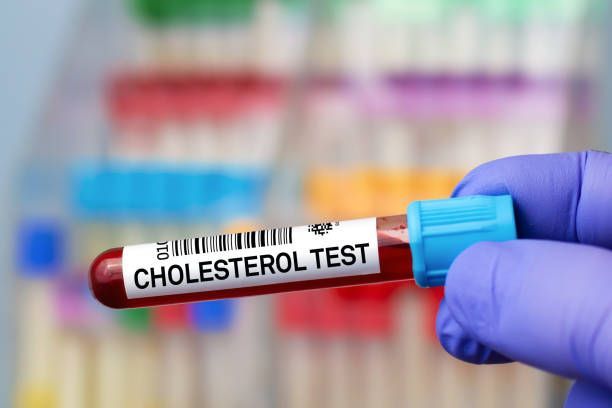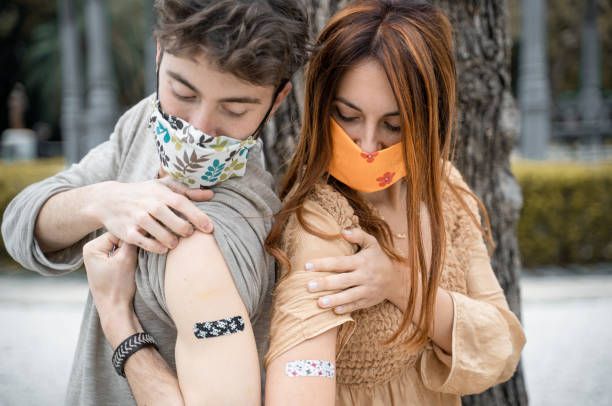Protecting Yourself from Dengue Fever
This summer has seen a worrying uptick in dengue fever cases, making understanding this mosquito-borne illness more crucial than ever. Dengue fever is caused by the transmission of dengue virus through Aedes mosquitoes. It poses significant health risks if not properly managed.
As you enjoy the warm weather and exciting outdoor activities, staying informed about the symptoms, causes, and prevention strategies for dengue fever is essential. This blog will guide you through everything you need to know to protect yourself and your loved ones from this potentially severe disease, as well as determine when it’s time to seek urgent care services. Stay safe and proactive with our comprehensive guide on dengue fever.
What is Dengue Fever?
Dengue fever is typically rare in the United States. However, there's recently been an upsurge in cases, thus requiring a deeper understanding of its transmission. Four strains of dengue virus can be transmitted to humans by mosquitoes, namely Aedes mosquitoes in tropical and subtropical climates such as Southeast Asia, the Pacific Islands, and even the Americas. Infection with one strain only provides partial immunity, leaving individuals vulnerable to subsequent infections.
Dengue fever typically manifests with flu-like symptoms, such as fever, headaches, eye pain, muscle pain, and rashes. In some situations, it can progress to hemorrhagic fever or dengue shock syndrome, which is potentially life-threatening.
Signs and Symptoms of Dengue
Dengue fever manifests with a range of symptoms that can vary from mild to severe. Symptoms typically appear four to ten days after being bitten by an infected mosquito. Early recognition of these symptoms can help with management and prevent complications.
The common symptoms of dengue fever include:
● High Fever: Can reach up to 104°F (40°C).
● Severe Headaches: Often intense and debilitating.
● Pain Behind the Eyes: A distinguishing symptom of dengue.
● Joint and Muscle Pain: Earning dengue the nickname "breakbone fever."
● Nausea and Vomiting: Frequent and sometimes severe.
● Swollen Glands: Noticeable swelling in lymph nodes.
● Skin Rash: Can cover most of the body.
If you experience any of these common symptoms, consider visiting a local urgent care center for supportive treatment.
Dengue Shock Syndrome
In some cases, the disease can progress to its severe form called dengue hemorrhagic fever or dengue shock syndrome, which is potentially life-threatening. The symptoms of dengue shock syndrome include but are not limited to:
● Severe Abdominal Pain: Persistent and intense.
● Persistent Vomiting: Often with blood.
● Rapid Breathing: Indicative of respiratory distress.
● Bleeding Gums: A sign of internal bleeding.
● Fatigue and Restlessness: Extreme tiredness and anxiety.
● Blood in Vomit or Stool: A critical symptom requiring immediate medical attention.
These severe symptoms indicate a medical emergency requiring immediate hospitalization. If you or a loved one exhibits any of these signs, especially after traveling to an area with known dengue outbreaks, seek medical care promptly to ensure proper care and treatment.
Diagnosing Dengue
Diagnosing you with the dengue virus involves a combination of clinical evaluation and laboratory tests. A healthcare provider will initially assess symptoms such as high fever, severe headache, pain behind the eyes, and joint and muscle pain.
Blood tests are conducted to confirm the diagnosis and detect the presence of the dengue virus or antibodies. These tests include the NS1 antigen test and PCR for early detection and IgM and IgG antibody tests for later stages.
Early and accurate diagnosis can help you achieve effective virus management and prevent complications, ensuring prompt and appropriate treatment for those affected.
Treatment Options
Treating dengue fever primarily involves supportive care to manage symptoms, as there is no specific antiviral treatment for the virus. Early diagnosis and proper medical care are key to reducing the risk of severe complications and promoting a swift recovery.
Supportive Care
Supportive care for dengue fever is essential for a smooth recovery. Hydration is critical, and patients may need oral rehydration solutions or intravenous (IV) fluids to maintain fluid balance and prevent dehydration. Acetaminophen (paracetamol) is recommended for pain relief to manage pain and reduce fever, but it’s important to avoid non-steroidal anti-inflammatory drugs (NSAIDs) like ibuprofen, as they can increase the risk of bleeding. Rest is also a priority, so patients should avoid strenuous activities to help their bodies recover.
Medical Intervention
In severe cases of Dengue, medical intervention by an urgent or emergent care team might be necessary. Due to the intensity of the condition, hospitalization is often required for conditions such as dengue hemorrhagic fever or dengue shock syndrome. This will likely include regular blood tests to monitor platelet levels and hematocrit. Additionally, stringent monitoring, IV fluids, electrolyte replacement, and blood transfusions may be needed to manage complications.
Home Remedies
While there isn't a definitive way to treat Dengue at home, home care plays a significant role in your comfort throughout the duration of your recovery. Managing fever with tepid sponging and light clothing can keep you comfortable. Additionally, a balanced diet rich in vitamins and minerals supports the immune system during recovery.
Prevention Strategies for Dengue Fever
Since dengue fever comes directly from mosquitoes, preventing the virus starts with management of the mosquito population and preventing bug bites. Some ways to do this include:
Mosquito Control
Eliminating standing water is one of the best things you can do to protect yourself from dengue, as mosquitoes breed in these areas. Routinely empty and clean containers that collect water, such as flower pots, buckets, and bird baths, to prevent fostering a breeding site in your backyard. Further, mosquito repellents are highly effective at repelling mosquitoes carrying the virus. Apply EPA-approved repellents to exposed skin and clothing. Products containing chemicals like DEET, picaridin, or lemon eucalyptus oil are typically the most effective. Keep in mind that some bug repellants of higher concentration can damage clothing, so use them as directed on the packaging.
Protective Measures
Wearing long garments can reduce your risk of mosquito bites and, therefore, reduce your risk of contracting dengue fever. Long-sleeved shirts, long pants, socks, and shoes create a barrier between your skin and mosquitoes. Another effective measure is using mosquito nets while sleeping. This is especially important n areas with high mosquito activity, to provide additional protection.
Environmental Factors
Nobody likes mosquitoes in their home. To keep the risk of dengue outside your house and protect your home, install screens on your windows. Make sure to check your screens for holes and tears regularly. With screens, you can keep your windows open to enjoy the fresh air without worrying about dengue mosquitoes coming inside. Additionally, participating in community efforts, such as engaging in local mosquito control and community clean-up programs to reduce breeding sites, can minimize the overall mosquito population in your town.
Vaccination
Vaccinations are used to prevent significant disease if you contract a virus. For example, if you’re bit with a mosquito that carries dengue, if you are vaccinated against the virus, your likelihood of getting very ill. The Dengvaxia vaccine is available in some countries and is recommended for individuals who have had a prior dengue infection and live in endemic areas. This vaccine can be crucial in preventing subsequent infections and contributing to broader public health efforts.
Visit an Urgent Care Center for Dengue Virus Treatment
Understanding and preventing dengue fever is crucial, especially during peak mosquito seasons. By recognizing symptoms early, seeking prompt medical attention, and implementing effective prevention strategies, you can protect yourself and your loved ones from this potentially severe illness.
At UrgiClinic Urgent Care, we are dedicated to providing comprehensive care and support for all your health concerns, including dengue fever. If you experience any symptoms or need guidance on prevention, don’t hesitate to reach out. Schedule an appointment with UrgiClinic Urgent Care today. Your health and safety are our top priorities.













